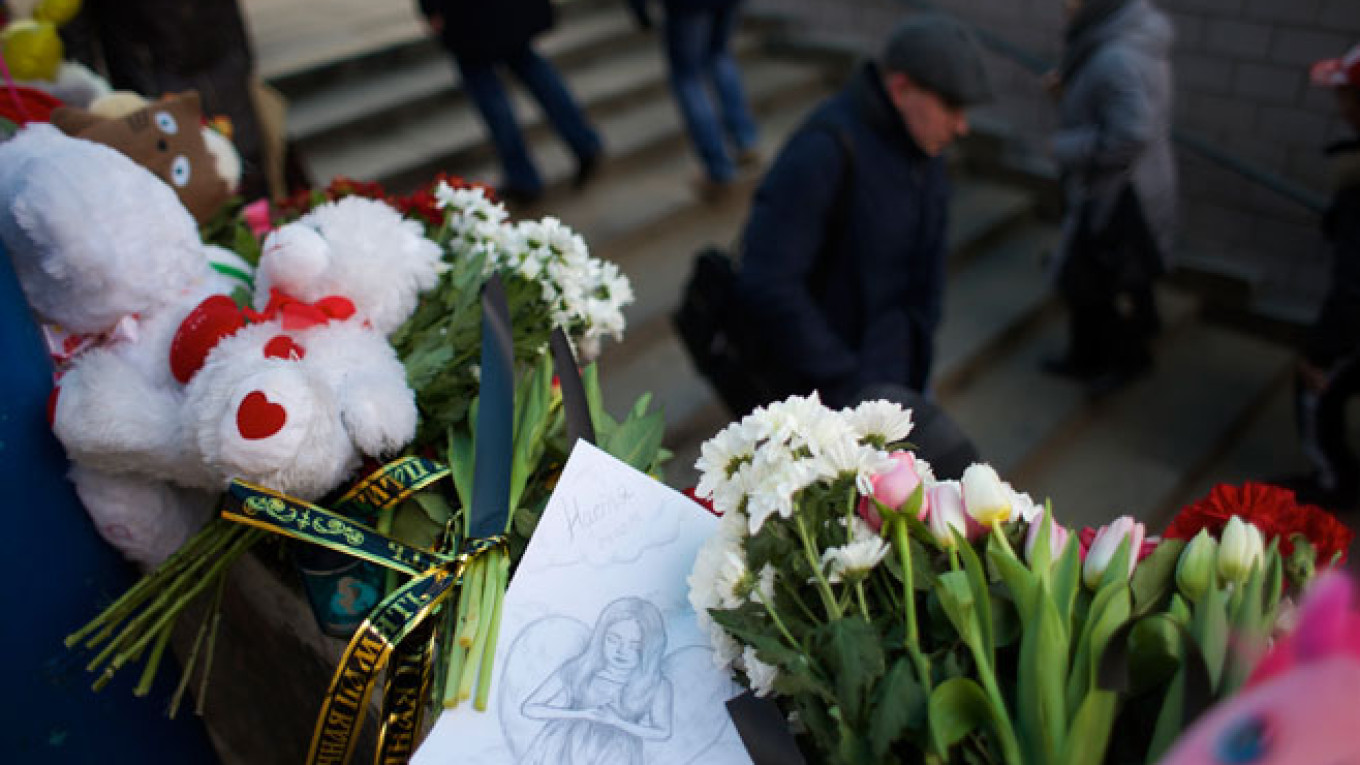A woman brandishes the severed head of a child, shouts “Allah Akbar,” and threatens to blow herself up. The gruesome scene observed in northwest Moscow on Feb. 29, would have dominated television screens in any other country. In Russia, however, no major network mentioned the incident.
The woman was later identified as Gyulchekhra Bobokulova, a 38-year-old national of Uzbekistan, a former Soviet republic in Central Asia. When confessing to the murder of the handicapped 4-year-old girl she had been caring for, Bobokulova said she had done it on “Allah’s orders.”
While it is premature to rule out terrorist links, initial impressions point to an act of madness rather than an organized attack. Interfax agency reported that Bobokulova had been diagnosed with a mental disorder, referring to sources within Uzbekistan law enforcement authorities.
After the shocking video was released online, it took the Kremlin a couple of hours to react. When it did, it moved to remove the subject from public dialogue. Its major concern, as later became apparent, was to avoid an uncontrollable backlash against migrants.
The official Kremlin position was denial that they had issued an order to television chiefs. “The channels decided themselves not to show crazy people,” Dmitry Peskov, the Kremlin spokesman was quoted as saying. “But we support them.”
A source close to the Kremlin confirmed to The Moscow Times that television managers “automatically check” with the Kremlin on such matters.
The following day the entrance to the Oktyabrskoye Pole metro station, the scene of the crime, became not only a makeshift memorial but also a meeting point for far-right activists plotting revenge.
The authorities were waiting for them.
“When I arrived I was immediately spotted and approached by law enforcement agents,” says Dmitry Dyomushkin, a far-right politician and a former leader of the disbanded “Russkiye” movement. “They told me to leave or be arrested.”
Dyomushkin says that he received phone calls from law enforcement and “people close to presidential administration.” “They urged me to use my influence to calm down others so that no one would take to the streets,” he said.
Far-right activists have never been far out of the authorities sights. The Kremlin fears ethnic riots like those on Manezh Square in 2010 or the pogrom in the southern Moscow suburb of Biryulyovo in 2013.
“Putin understands riots could have very unpredictable consequences,” says Alexander Verkhovsky, a leading authority on Russian nationalism.
Syria makes the situation more dangerous. Russia’s military actions, which have been advertised widely on national television, were specifically designed to work as a source of national mobilization. But they were only meant for television screens, depicting a far-off land.
“The security concept was built on the idea of the fight being a long way away,” confirms the close-to-Kremlin source. “Moscow is another story.”
The source suggested that not even the complete blackout of this story eliminated the risk of wider social destabilization.
Segments of Russian Internet are already full of outrage and resentment. On March 1, the Moscow branch of the Communist Party launched a “stop migration” website, with blunt anti-immigration messages accompanied by an icon of a woman in a burka brandishing a decapitated head.
Kremlin officials have this story on the same desk as news from Syria, says political analyst Gleb Pavlovsky, and they are “desperately afraid” of the parallels that might arise.
The censorship in this case, he says, is comparable to the initial silence of the authorities in regards the terror attack on the Russian passenger over Egypt's Sinai Peninsula on Oct. 31 — killing all 224 aboard. Russian authorities admitted it was a terror attack on Nov. 16, days after it was publicly confirmed by security services in Britain and the United States.
According to media analyst Vasily Gatov, the Kremlin has been rendered helpless by its own national propaganda and war discourse. “Broadcasting this type of news even in a neutral way can lead to emotions that cannot be programmed.”
The Kremlin is falling victim to its own agenda — with frustration in Russian society straining for release, like steam in a pressure cooker, and whatever the Kremlin does, the heat keeps rising.
One cannot imagine more effective fuel than the image of a decapitated young girl.? ? ?
Contact the authors at v.kolotilov@imedia.ru and m.fishman@imedia.ru
A Message from The Moscow Times:
Dear readers,
We are facing unprecedented challenges. Russia's Prosecutor General's Office has designated The Moscow Times as an "undesirable" organization, criminalizing our work and putting our staff at risk of prosecution. This follows our earlier unjust labeling as a "foreign agent."
These actions are direct attempts to silence independent journalism in Russia. The authorities claim our work "discredits the decisions of the Russian leadership." We see things differently: we strive to provide accurate, unbiased reporting on Russia.
We, the journalists of The Moscow Times, refuse to be silenced. But to continue our work, we need your help.
Your support, no matter how small, makes a world of difference. If you can, please support us monthly starting from just $2. It's quick to set up, and every contribution makes a significant impact.
By supporting The Moscow Times, you're defending open, independent journalism in the face of repression. Thank you for standing with us.
Remind me later.


